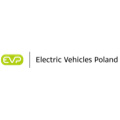01_2017 OEM’s new investments in the infrastructure, but Poles are not interested in electric cars so far
Initial, tentative information about four vehicle manufacturer brands: VW, BMW, Ford, and Daimler entering cooperation intended to create a European fast charging network for EVs surfaced at the turn of December. Confirmation of these reports followed soon after. The main idea behind this enterprise is to make it possible for EV owners to travel over greater distances, as well as to make this means of transport more popular.
The EV charging stations planned to make up this network will offer their customers a fast charging functionality, with access to 350 kW of power. To put things into perspective, Tesla's super-fast charging stations are rated at 120 kW. Four hundred of such facilities are going to be created nearby motorways as well as other traffic-heavy areas. All of them will comply with the Combined Charging System (CCS) standard for existing EVs as well as for planned EVs from brands making up the joint venture.
Construction work is scheduled to begin in 2017, with a completion date set for 2020. Commencement of this continental EV infrastructure project is connected directly with the brands’ involvement in manufacturing and development of electric vehicles that are cheap to maintain and, most importantly, environmentally safe. Daimler states that by 2025 the company is going to be manufacturing more than 10 vehicle models powered entirely by an electric drive.
The participants are going to try to get other automotive companies, including local partners, involved in the European charging network undertaking as well. For comparison, the USA has a network of close to 6 thousand stations offering EV charging functionality.
Morawiecki’s plan
Poland also has big plans for EVs, though there are some tough questions to be asked concerning how these plans are going to be executed. Mateusz Morawiecki, the current government’s V-ce President and Minister of Finance, has made the assumption that approximately a million EVs will be travelling on Polish roads over the next decade. Whereas the ‘Electric mobility’ programme is intended to bring an automotive evolution to Poland, experts express their concerns whether this vision can actually become reality. The mechanics of the ‘Electric mobility’ programme are supposed to convince Poles to use small electric vehicles when they travel over short distances, or e.g. go shopping (possibly including car-sharing schemes), with electric busses speeding on city streets. Furthermore, and importantly, these electric vehicles are intended to be manufactured in Poland. This stage of the plan seems to be the hardest one to make happen, if only due to the fact that Poland has no EV manufacturers of its own.
The idea is also controversial because such plans had already been announced by leaders of other countries before – by president Barrack Obama, or the German Chancellor Angela Merkel. The US president had said that a million EVs would be travelling on American roads by 2015, yet this plan has come to reality only in half. On the other hand, the woman at the Europe’s largest economy intends to see a million EVs on German roads by 2020, with as little as 25 such vehicles having been registered so far.
The number of EVs registered in Europe and in Poland in 2016
While EV sales continue to grow both in Poland and in Europe in general, the rate of this growth is still slow. Although 25% more EV/PHEV-drive cars were sold in Q3 2016 than in the previous year, this is still not an optimistic result. The total number of ‘electrified’ vehicles registered in Europe by Q3 2016 was rather low, reaching barely 143 315. In Poland, just 347 new EVs were registered throughout 2016, which, while being an 80% increase on the previous year, is still not a very impressive number. Norway remains the current global leader in the number of EVs per capita, with 100 000 of such vehicles travelling on this country’s roads at the moment. This means that this small Nordic country with a total population of 5.2 million can boast an astonishing 9 EVs per 1000 citizens. Furthermore, EVs amount to approx. 20% of all newly registered vehicles, with sales additionally fostered by tax discounts, city centre entry fee exemptions, or access to free parking. Still, USA, China, and Japan are the current leaders in the total number of EVs in use.
What do Poles think of EVs?
Taking into consideration activity of automobile manufacturers in the area of electro mobility, but at the same time very small interest in electric cars not only in Poland but in general, we decided to ask Poles about their attitude towards cars with electrical drive. Our interest was additionally fueled by current government plans regarding development of electro mobility in Poland.
Between 19th and 20th of January 2017 we asked 1000 adult Poles about their interest in cars charged from the socket. We assumed that the questions regarding electric cars should be answered only by those persons who at least live together with someone who is a driver – those people may be potentially most interested in buying electric cars in the future. We assumed also that to be interested in buying an electric car a potential owner/user should have the possibility to charge the car outside of the house. That is why for the purposes of the survey we described to our respondents hypothetical situation in which in the future they would have access to at least one auto mobile station in their hometown. When describing hypothetical situation to our respondents we also mentioned about the price of electric car – we assumed that cars of this kind would be still more expensive, around a dozen or so percent, in comparison to traditional cars with traditional engine. Would Poles be interested in buying an electric car considering such an optimistic hypothetical situation?
The majority, that is 49.7 percent of respondents, answered, that not ("Rather not" 15.8 percent and "Definitely not" 33.9 percent). Interested in the purchase of the electric car was a total of 31.6 percent of respondents ("Definitely yes" 14.5 percent and "Rather yes" 17.1 percent). Almost 19 percent of respondents wasn't not quite in the state to determine one's position in the matter in question. What's interesting, such factors as the sex, the age, the education or the domicile aren't enjoying considerable influence to the attitude of respondents to the purchase of the electric car. All that means that for the here and now, Poles aren't interested in the electric mobility. Even introducing Poles to the prospect and describing the quite optimistic possible future situation won’t cause, that they would be willing in this moment to the clear purchase declaration. The situation of the electromobility in a few years is a really large unknown. It seems, that not only for consumers but also for participants and adjusters of the market. We promise that we will be monitoring this issue regularly in order to check, whether along with the market development an interest in electric vehicles is growing in our country. Perhaps we will exceed magic number 1000 of registration of new electricians annually shortly.
























































